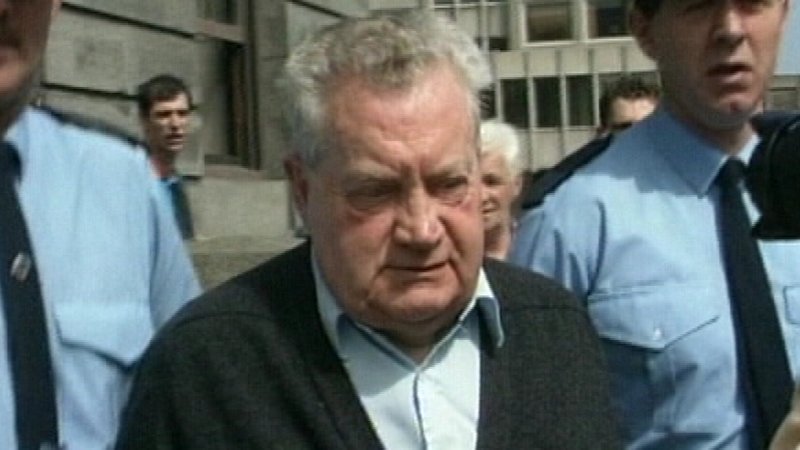Court Rules Victims of Brendan Smyth Entitled to Full Hearing for Damages
RTE News
The Supreme Court has ruled that three victims of paedophile priest Brendan Smyth are entitled to a full hearing of their claim for damages in the High Court. The three had appealed a previous ruling that they were bound by the settlement of cases they had taken in Northern Ireland. The man, his sister and their cousin - were sexually abused as children by Smyth between 1969 and 1988. In the late 1990s, they settled actions in the Belfast High Court for ?25,000 each for the man and the cousin and ?16,000 for the sister. They say they learned from newspapers in 2012, that the Catholic Church authorities had been informed of Smyth's abuse as far back as 1975, by another boy. The same boy had also said the man in this case had been away on a holiday with Smyth where abuse occurred. As a result, they brought new proceedings here claiming, among other things, that they had suffered a recurrence of trauma as a result of the publication of that information. They sued Bishop Leo O'Reilly in his capacity as representative of the Kilmore diocese and former Cardinal Sean Brady, in his personal capacity arising from his role as part-time secretary to former Bishop of Kilmore, Francis McKiernan. They claimed if steps had been taken in 1975, then it was probable the abuse of the man in this case might have ended and that of the sister and the cousin might never have even begun, it was claimed. It was also asserted the Northern Ireland settlements did not represent the full monetary value of their claim and the church had concealed or failed to disclose information when making those settlements. In 2014 the High Court halted the actions against Bishop O'Reilly on the basis that the proceedings had previously been subject to "accord and satisfaction" (in Northern Ireland). The three appealed and in November 2015, the Court of Appeal upheld the High Court decision, similarly on the basis of prior accord and satisfaction. They were given leave to appeal that decision to the Supreme Court which heard the case earlier this month. Overturning the Court of Appeal decision, Mr Justice Donal O'Donnell, on behalf of a five-judge Supreme Court, said the matter should go back to the High Court for full hearing. Mr Justice O'Donnell said it was doubtful that the question of prior accord and satisfaction in this case could ever have been capable of being dealt with as a preliminary issue by the High Court, without the hearing of oral evidence. The High Court had ruled there could be no oral evidence even though the plaintiffs had a Queen's Counsel to give evidence on the question of whether the Northern Ireland settlements represented full value of the claim, Mr Justice O'Donnell said. They also had the evidence of the man who as a boy had been abused by Smyth and had told the church authorities of it. The plaintiffs may have been left with an understandable sense of grievance that they were precluded from adducing any evidence on the issue before their claims were determined, he said. This could have been avoided if the mode of trial had been fixed in advance. This was a complex case and the issue of prior accord and satisfaction was anything but clear-cut. This was best illustrated in the case of the sister who had only sued Smyth's religious order, the Norbertines, in Belfast. The brother and cousin had sued the Norbertines, then Cardinal, Cathal Daly, and Smyth himself. The sister's settlement did not state that it was also against third parties and, on that basis alone, the conclusion that she was bound by that settlement not to bring further proceedings "must be doubtful". The question of whether the Belfast settlements could also cover any actions here against Bishop O'Reilly and Cardinal Daly must also be doubtful, he said. Mr Justice O'Donnell was satisfied the legal issues in these cases are not readily disposed of by a single preliminary hearing on the question of accord and satisfaction but are rather "best dealt with at a hearing in which all the evidence can be adduced."
|
.
Any original material on these pages is copyright © BishopAccountability.org 2004. Reproduce freely with attribution.
